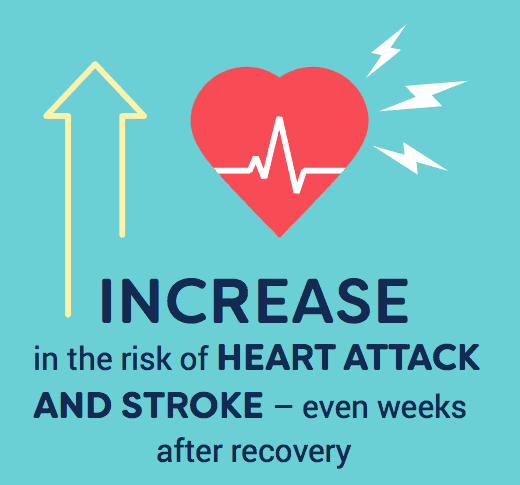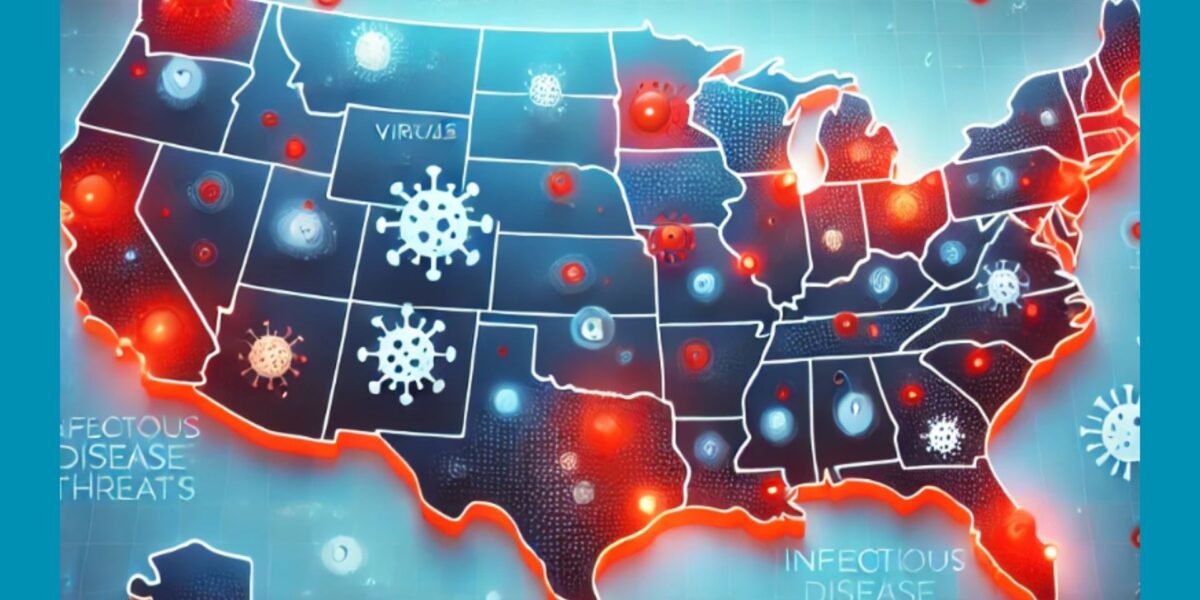
 Along with Valentine’s Day, February is also American Heart Month, a great time to commit to a healthy lifestyle and make small changes that can lead to a lifetime of heart health. As the leading cause of death for men and women in the US, heart disease can make it harder for the body to fight off certain infections and increases the risk of serious complications.
Along with Valentine’s Day, February is also American Heart Month, a great time to commit to a healthy lifestyle and make small changes that can lead to a lifetime of heart health. As the leading cause of death for men and women in the US, heart disease can make it harder for the body to fight off certain infections and increases the risk of serious complications.
During American Heart Month, the National Foundation for Infectious Diseases (NFID) reminds those with heart disease to stay up-to-date on all recommended vaccines—especially influenza (flu), pneumococcal, Tdap, and shingles—as any infection can cause inflammation that may play a role in coronary artery disease.
 Influenza (Flu): Adults with heart disease are at high risk for developing serious complications from influenza. Getting an annual flu shot is the best way to help prevent flu. Research has shown that influenza vaccination reduces the risk of acute coronary syndrome and cardiovascular disease-related deaths. According to a recent study published in the New England Journal of Medicine, the risk of heart attack was 6-times higher in the first week after flu was diagnosed.
Influenza (Flu): Adults with heart disease are at high risk for developing serious complications from influenza. Getting an annual flu shot is the best way to help prevent flu. Research has shown that influenza vaccination reduces the risk of acute coronary syndrome and cardiovascular disease-related deaths. According to a recent study published in the New England Journal of Medicine, the risk of heart attack was 6-times higher in the first week after flu was diagnosed.
Pneumococcal: Pneumococcal disease is caused by a type of bacteria called Streptococcus pneumoniae which can cause pneumonia, meningitis, middle ear and sinus infections, and sepsis, an infection of the bloodstream. Individuals with heart disease are at increased risk for invasive pneumococcal disease, including pneumonia with sepsis. Pneumococcal vaccines can help prevent disease and are recommended for routine use in children, adults age 65 years and older, and adults age 19 to 64 years with certain risk conditions, including heart disease.
Tdap (Tetanus, Diphtheria, and Pertussis): These diseases were once quite common in the US and led to many deaths. Routine vaccinations have helped to nearly eliminate tetanus and diphtheria infections. However, cases of pertussis (whooping cough) continue to rise in the US due to waning immunity and inadequate vaccination, as some parents choose not to vaccinate their children. Tdap vaccination offers the best protection against tetanus, diphtheria, and pertussis and CDC recommends that adults and adolescents receive one dose of Tdap, as a substitute for the Td (tetanus-diphtheria) booster recommended every 10 years. This is especially important for those in contact with young infants as well as pregnant women.
Shingles (Herpes Zoster): In the US, 1 in 3 adults will get shingles in their lifetime. Anyone who has had chickenpox is at risk for shingles, and the risk increases with age. In January 2018, the recommendations for shingles vaccination were updated to include a new shingles vaccine (Shingrix®) recommended for healthy adults age 50 years and older as well as individuals with certain chronic medical conditions, including heart disease.
To learn more about vaccines recommended for those with heart disease, visit www.cdc.gov and www.adultvaccination.org.

To join the conversation during American Heart Month, follow NFID on Twitter using the hashtag #HeartHealth, like us on Facebook, follow us on Instagram, join the NFID Linkedin Group, and subscribe to NFID Updates.
Related Posts

News Round-Up: Infectious Disease Threats
According to NFID website poll, there are several worrisome infectious disease threats. Read recent news on topics of greatest concern, including avian influenza (bird flu), measles, and respiratory syncytial virus (RSV) …

Vaccines and Heart Health: A Vital Connection
Heart disease can increase the risk of serious or fatal complications from respiratory diseases including COVID-19, flu, and RSV

Harnessing the Power of Local Data
NFID dashboard aims to empower stakeholders with hyperlocal data to increase US adult respiratory vaccine uptake
